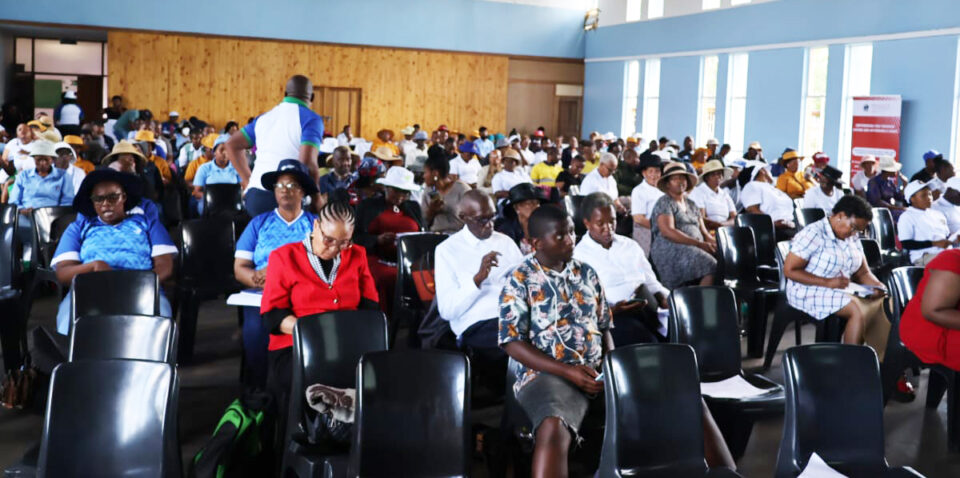Ithabeleng Qhasho
IN Lesotho, cooperatives exist in large numbers, yet few manage to participate effectively in formal or large-scale markets.
Most face challenges such as poor management, limited financial capacity, and sustainability issues, which often restrict them to serving local communities rather than tapping into regional or international markets.
This concern was raised by a Senior Lecturer at Lesotho Cooperatives College, Mpitseng Mateboho Khama, during a two-day cooperative symposium hosted by the Ministry of Trade, Industry, and Small Business Development on 5 to 6 November in Maseru, in celebration of International Cooperative Day.
Ms Khama highlighted the success of cooperatives in other countries as an example for Lesotho.
In Kenya, cooperatives contribute an estimated USD 45.2 billion annually across all sectors and account for approximately 30% of national savings and deposits. Ethiopia has seen remarkable growth, boasting over 82,000 registered cooperatives. These statistics were shared to encourage Lesotho’s cooperatives to strengthen their participation in the national economy and learn from regional models.
Globally, cooperatives are recognized as powerful engines of economic growth and social inclusion. Around three million cooperatives generate over USD 2.4 trillion in combined turnover, and at least 12% of the world’s population belongs to a cooperative. These institutions provide jobs or work opportunities for roughly 280 million people—10% of the global employed population—underscoring their importance for both local livelihoods and international markets.
Commissioner of Cooperatives, Bokheseng Nootsi, described the symposium as a platform for dialogue, offering members space to reflect on cooperative principles and explore sustainable practices to enhance their impact.
“This is a platform for you to discuss challenges facing cooperatives, celebrate successes, and explore ways to move forward,” Mr Nootsi said.
Sylvester John Amoake from the Blessings SHCCO Cooperative stressed that the cooperative model is one of the most sustainable forms of doing business.
“It is member-centric—members define the business, share risks and profits, and take ownership of its success,” Mr Amoake said.
He added that cooperatives must be economically viable, with strong financial foundations, clear governance, ethical practices, and the ability to innovate and adapt in times of crisis, such as the COVID-19 pandemic.
Participants also identified local challenges. ‘Majoje Moloi from Phuthalichaba Credit and Savings Cooperative Society cited poor attendance at meetings, weak financial management skills, and lack of member commitment as key obstacles.
“Many people join cooperatives out of desperation—either for access to credit or because of hunger—not because they believe in the values of cooperation. That’s why many cooperatives fail,” she said.
The symposium provided a forum for members to exchange ideas on improving internal governance, building financial literacy, and strengthening accountability within cooperatives.
The event marked Lesotho’s participation in the United Nations’ International Year of Cooperatives 2025, under the theme: “Cooperatives Build a Better World”.

